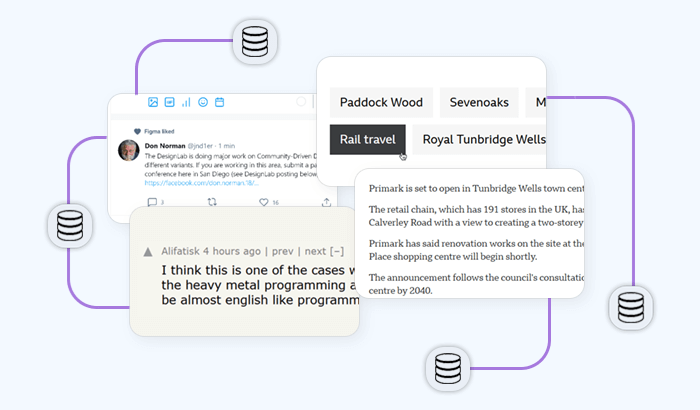

Companies that work in the Finance industry require more reliable and robust security solutions than most businesses that operate in other fields. Take the Equifax case, for example - just one data breach exposed sensitive data of around 150 million customers. And in the end, this accident cost Equifax 4 billion dollars.
Any company should protect itself from data breaches. And finance organizations have to put even more effort into safeguarding corporate and clients’ data because they can suffer from data leaks even more than businesses from other fields. So obviously, it’s expected from them to provide the clients with the highest level of security. And a big part of this task lies on Fintech - Financial Technology.
How can fintech provide security?
First of all, fintech systems should be built with security in mind. Each step must be protected, as well as all the data stored in this system. To make this task a bit more feasible, the developers can:
- Make a system store only vital data. For instance, it’s better to hold the token of the billing method instead of keeping the credit card information of the client.
- Control who can access the advanced features. Some systems can be rather sophisticated. That’s why you need to take care of the levels of access everyone has, including clients.
- Force users to create complex passwords. No matter what security actions you take, it’s impossible to protect the data if users have passwords like “0password1”. Create more complex requirements for passwords.
- 2-factor authentication. Almost every fintech system utilizes this approach today. So there is no reason for you to omit adding more authentication methods.
- Log user activity. Logging all the user actions, you will have a chance to spot suspicious sessions and conduct an incident post-mortem report if an accident happens.
- Block suspicious activity. It goes without saying that if the system detects weird actions, it should freeze them for the later review.
- Protect key actions. For example, large transactions should require multi-step approvals for successful processing.
- Protect the server. Obviously, if the server where your fintech system is hosted is vulnerable, you put at risk all the data.
- Use proxies. They will protect the transferred data.
What is a proxy, and why fintech companies need it?
When the user reaches the destination server directly, it can see the IP address and other vital information about the user. It gives hackers opportunities to crawl into the system and steal valuable data. Such a situation is especially likely if some of your team members work remotely, and their network is not quite protected from attacks.
Proxies are remote servers you can connect to. Once the user is connected to a proxy server, their traffic is routed through it. And only then the user reaches the destination server. As a result, the authentic IP address becomes invisible, and the server sees the IP of a proxy. Thus, it’s impossible to trace the user. And, therefore, hackers can’t get into the system.
As you can see, proxies are rather simple technology. And it won’t be hard to implement them into the workflow. Although such an addition won’t impact the process, it will improve the security of your company and, consequently, of your clients.
Why should you choose Infatica proxies?
- High-quality data center and residential proxies. You will never get blocked using our services.
- High speed. Stay safe without any inconvenience.
- Clear pricing. You always know what you pay for.
- Rotating addresses. Get a new IP with each request.












